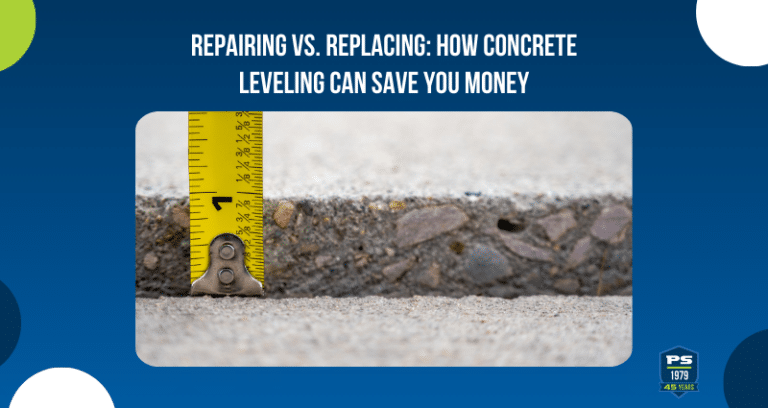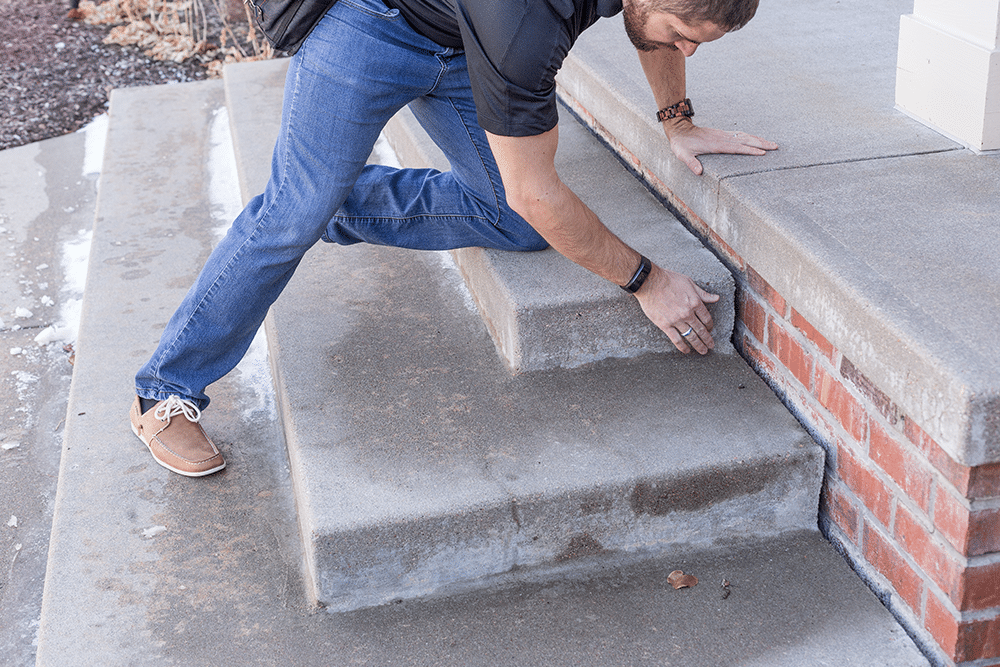
Concrete surfaces, whether it’s your driveway, patio, or sidewalk, are durable, but they can show signs of wear and tear over time. Cracks, sinking, or uneven surfaces are common issues that can affect not only the appearance of your home but also its safety. When faced with damaged concrete, homeowners often wonder: should I repair or replace it entirely? While replacement might seem obvious, concrete leveling is a more cost-effective and less invasive option in many cases.
Keep reading to learn why concrete leveling is often the right choice for homeowners in Chicago.
When to Repair (Lift or Level) VS. When to Replace
Knowing whether to repair or replace concrete depends on the extent of the damage. Concrete leveling, also known as concrete raising, involves lifting sunken or uneven concrete slabs back to their original position using methods like polyurethane foam injections. This is ideal for minor to moderate issues, such as:
- Sinking slabs: Uneven surfaces caused by settling soil beneath the concrete.
- Small cracks: When cracks aren’t severe and don’t indicate significant structural damage.
- Trip hazards: Slight height differences between slabs that pose safety risks.

When to Repair: If your concrete has minor settling or cracking, leveling is often the best choice. It’s a faster, less disruptive process compared to replacement. For example, your driveway or patio can be leveled in just a few hours, without the need for heavy equipment or extensive digging. This is especially helpful in areas where landscaping or other structures would be disturbed by full-scale replacement.
When to Replace: Concrete replacement becomes necessary in more severe cases, such as when the slab has extensive cracking, heaving, or when the underlying soil is unstable. Replacement is also preferred when aesthetics are a primary concern—like when deep stains or large cracks significantly affect the surface’s appearance. However, replacement is more expensive and time-consuming, as it involves removing the old slab, pouring new concrete, and waiting for it to cure.
Why Concrete Leveling Saves You Money
Concrete leveling can be up to 70% less expensive than full concrete replacement. Since the process involves lifting the existing slab rather than demolishing and pouring new concrete, both material and labor costs are reduced.
- Faster Turnaround: Concrete leveling can usually be completed in a single day. Unlike replacement, which requires curing time for new concrete, a leveled slab can often be used immediately after the repair. This reduces downtime, particularly in high-traffic areas like driveways or patios.
- Less Mess and Disruption: Leveling uses smaller equipment, meaning there’s no need to tear up your yard, disturb landscaping, or block off large sections of your property. The process leaves your home’s appearance largely intact, with no risk of mismatched slabs or lingering debris.
- Same Quality of Concrete: Another cost-saving aspect of leveling is that you maintain the same quality concrete that’s already in place. New concrete, while fresh, can sometimes vary in quality, and there’s always the risk of it settling again in the future.
What Areas Can Be Raised
Concrete leveling is versatile and can be used in many areas of your home, including:
- Driveways
- Sidewalks
- Patios
- Garage floors
- Pool decks
- Basement floors
- Steps and porches
- Walkways
In any of these areas, leveling can help restore safety and appearance without the high costs and inconvenience of replacement.
Key Takeaways: Choosing Concrete Leveling Will Save You Money
Concrete leveling offers a practical and affordable solution for homeowners dealing with uneven or sunken concrete. Whether it’s your driveway, patio, or sidewalk, leveling can extend the life of your existing concrete, restore its appearance, and prevent further damage—all at a fraction of the cost of replacement.
If you’re facing concrete issues, it’s worth considering concrete leveling as your first option. Not only does it save money, but it also preserves your home’s aesthetics while reducing downtime and mess. Consider reaching out for a professional assessment to determine if leveling is the right choice for your property.